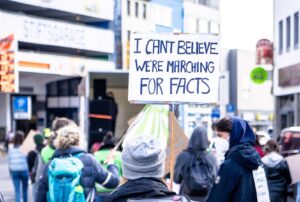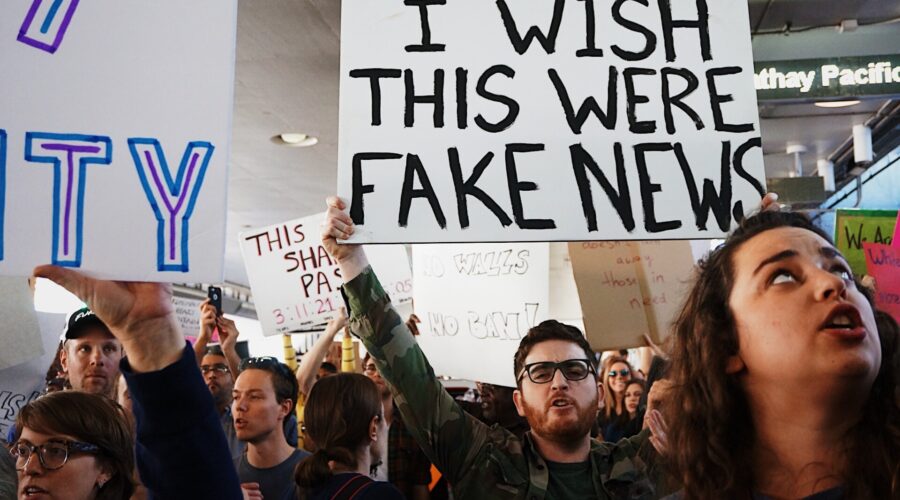It is widely believed that all fake news is related to conspiracies or serves an ideological purpose, however, a 2023 study published in the Journal of Experimental Psychology: General, suggested that both conservative and liberal Americans may spread unreliable information to fit in and avoid being ostracized.
In other words, regardless of their position in the political debate, people are inclined to share unreliable information to be included in the group. This suggests that social circle weight is a big driver of fake news, and this has an influence on the political climate.
The findings show that many people who share fake news do not do so with malicious intent, yet it contributes to distrust in democratic institutions and increased political polarization.
You’re not welcome if you don’t share
The study analyzed the tweets of more than 50,000 pairs of users in the United States, including tweets with fake news. The researchers measured political ideology through an algorithm and the number of tweets among users in the same social circles. They found that, regardless of political ideology, users were less likely to interact with each other on Twitter over time if one of them did not share the information.

In a second experiment, in which they analyzed the behavior of 10,000 Twitter users, they found that those users who shared fake news were more likely to exclude others who did not share the same content and showed less interest in these social connections. In further experiments, participants who worried about the social costs involved were more likely to share false news.
“If someone in your online tribe is sharing fake news, then you feel pressure to share it as well, even if you don’t know whether it’s false or true,” said lead researcher Matthew Asher Lawson, PhD, an assistant professor of decision sciences at INSEAD, a business school in France.
Political ideologies are not the whole explanation
According to Lawson there are many factors that contribute to people’s decisions to share fake news. This complexity in drivers makes it difficult to reduce the spread.
80% of fake news sharing is done by 1% of users
“Political ideology alone doesn’t explain people’s tendency to share fake news within their social groups,” Lawson said. “There are many factors at play, including the very basic desire to fit in and not to be excluded.”
The researchers noted that a previous study found fake news represented only 0.15% of daily media consumption in the U.S., while 80% of fake news sharing is done by 1% of users.
Inaccurate information
In addition to social pressure, other factors can influence the spread of fake news. Some people share unreliable information because they are not paying attention to the accuracy of the content, according to a 2021 study published in Nature.
This research suggests that the design of social platforms may deter people from reflecting on accuracy, because users move quickly between emotionally engaging content, serious news and instant retribution through comments.
The impact of fake news
Fabricated news causes a significant amount of confusion, said about 64% of respondents to a Pew Research Center survey. However, 23% admitted to sharing a fabricated news story at some point. Sixteen percent have shared a story they later realized was false, and 14% said they shared a story they knew was false at the time.
The blame often falls on someone else, such as social networks, users and politicians. 45% said that the government, politicians and elected officials bear a big responsibility and 42% talked about the responsibility of social networking sites and search engines.
However, people have high confidence in their ability to detect fake news. About 39% feel confident that they can recognize fake news and 45% feel somewhat confident. Which may steer them away from reflecting on veracity. In another 2021 study related to fake news about Covid-19, respondents rated themselves as more attentive to fake news than others.
Trust in the source, social connections, and emotional ties may also influence and affect people’s susceptibility to fake news. Pre-bunking methods — a series of tools that attempt to minimize the spread of fake news and provide information on the ways in which disinformation is propagated — can help reduce the diffusion of fake news.
Photos by Kayla Velasquez and Mika Baumeister

